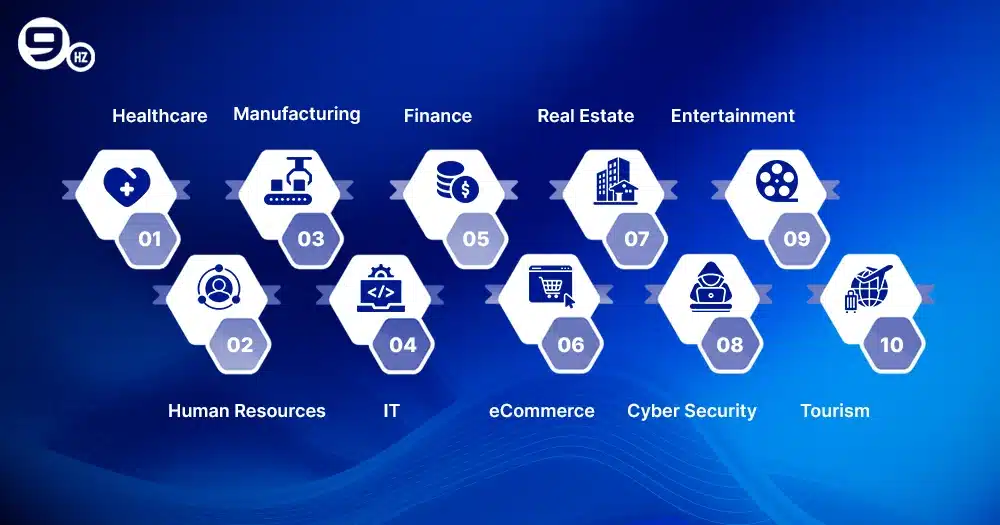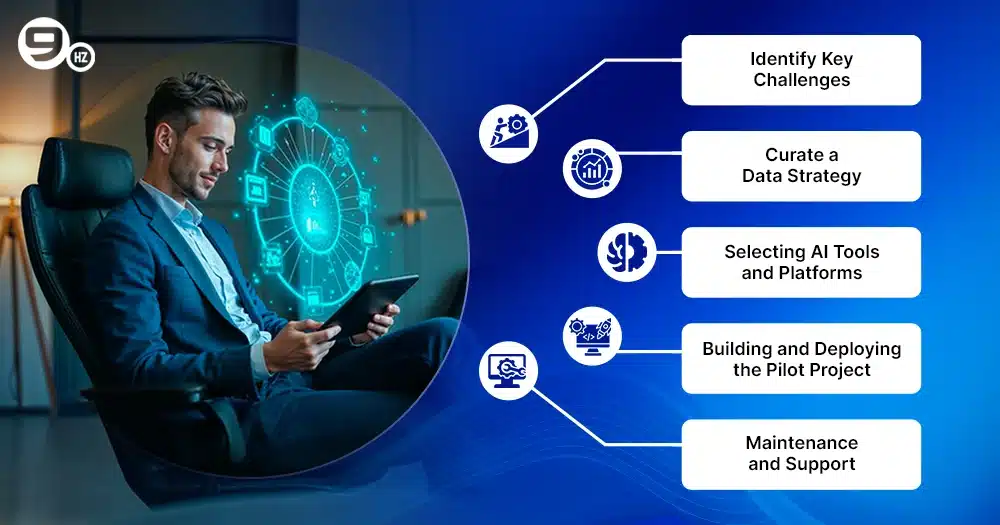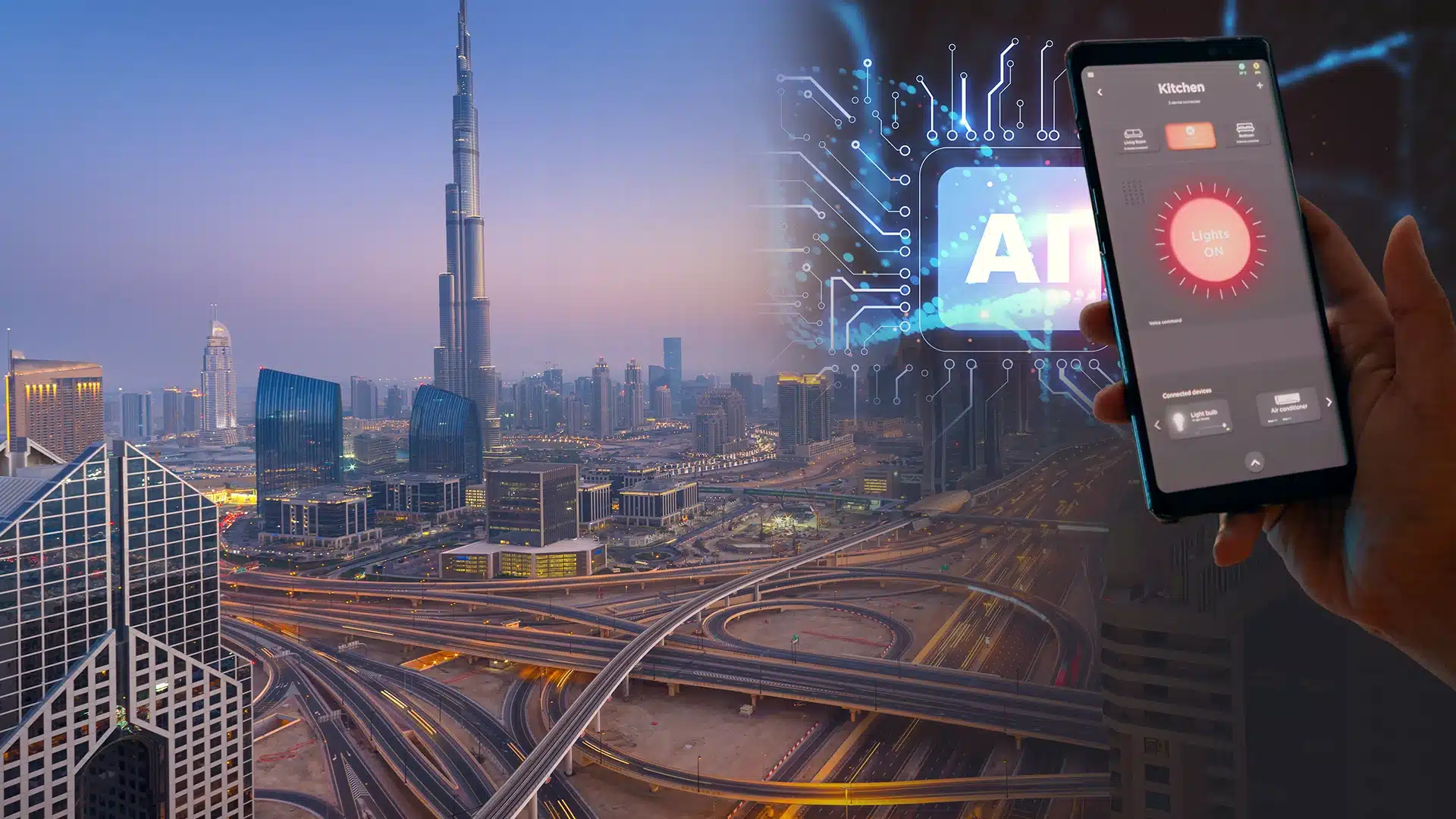Artificial intelligence has changed the way business operates. However, when we dig a little deeper, we will notice that there are various parts of artificial intelligence playing the role of a basic unit to bring the transformation. Agentic AI is one of the most used and advanced parts of AI that helps businesses to automate their operational process to a significant extent. Today, Agentic AI use cases can be witnessed in any industry and any part of the overall operational process.
According to Statista, the market valuation of Agentic AI stood at $5.1 billion in 2024, which is increasing with a CAGR of 44% to achieve the valuation of $47 billion by the end of 2030. Similarly, Gartner reports that agentic AI will autonomously resolve 80% of the common customer service issues without human intervention by 2029. So, there is no doubt that agentic AI business use cases are increasing tremendously, making it a core part of an operational process rather than an option.
If you are also a business owner and looking to develop an Agentic AI solution, we have curated this blog that will clear all your doubts about the technology and implementation process. Let’s get started-
What is Agentic AI?
Before we talk about the Agentic AI business use cases, it is important to understand what is agentic AI and how it works. So, Agentic AI is a part of artificial intelligence that consists of the combination of AI agents to automate tasks. The core competency of agentic AI solutions is that they require minimal or no human intervention to perform tasks. It can take data-driven and strategic decisions while taking care of possible outcomes and consequences. For example, when Agentic AI is installed for cybersecurity purposes, it will automatically identify the anomalies, run the troubleshooting, prevent the data from being breached, conduct the defined course of action, and also alert the concerned authorities.
Agentic AI incorporates machine learning capabilities to analyze data, learn from user behavior, and take actions. At the same time, these agents are trained with a huge quantity of data that helps them to assess the environment and thus decide the actions accordingly. The following are the core parts of the working mechanism of agentic AI solutions–
- Perception and data collection
- Reasoning and decision making
- Goal setting and strategy development
- Action and execution
- Learning and adaptation
Ready to Build Smarter Systems with Agentic AI?
Let’s create AI that makes decisions, learns, and grows with your business.
10 Best Agentic AI Use Cases Industry Wise
Agentic AI examples can be best understood by explaining them based on their respective industries. The distribution makes it easier to explain how an identical AI solution performs the various roles in different industries. Here are the core industries that best leverage the Agentic AI business use cases–
1. Healthcare
From providing better healthcare access to people in remote areas to enabling healthcare institutions to better optimize the resources and provide better care to their patients, there are numerous agentic AI use cases witnessed in the healthcare industry.
a. Early Disease Diagnosis
Agentic AI solutions, when integrated with computer vision technology, help healthcare professionals identify potential diseases like tumors and internal injuries by monitoring CT scans, MRIs, and X-rays. The early diagnosis gives enough chances to start medication and offer better care to patients.
b. Drug Discovery
According to statistics, each drug discovery trial costs approximately $1.3 billion. So, agentic AI makes the process fast and cost-efficient by designing the drug composition, predicting the side effects, and identifying the ideal candidates for an efficient clinical trial.
c. Optimized Workflow
Agentic AI solutions are capable of keeping track of all the resources and staff within the institution. So, it helps in establishing a better workflow by optimizing resources, ensuring that maximum patients can be entertained without overloading the doctors and assistants.
2. Human Resources
Relying on the traditional hiring processes results in inefficient recruitment and a time-wasting approach. So, integrating agentic AI into the HR department makes hiring seamless and more effective.
a. Better Screening
Reading and filtering out the best resume from a pile of thousands might take more than weeks for a human. Agentic AI, on the other hand, can perform this task within minutes by aligning the candidate’s skills to pre-defined eligibility criteria. It even eliminates human errors from the process.
b. Employee Support
Agentic AI examples even stretch toward providing active support to the existing workforce of the company. Whether it is responding to their leave requests, sending prompt replies to their emails, or analysing their productivity, agentic AI covers it all.
c. Workforce Management
This is one of the best agentic AI business use cases as the technology solution keeps track of employee performance and their skills. So, tasks can be segregated more efficiently to produce the maximum output without further investing in hiring people.
3. Manufacturing
Manufacturing is a big industry that requires agentic AI use cases to save costs, increase efficiency, and make data-driven decisions. Here are the agentic AI examples that best relate to the manufacturing industry-
a. Predictive Maintenance
Agentic AI makes sure that all the machines are working at their full potential, in ideal conditions. The timely maintenance of the machines is ensured, and as soon as any anomalies are identified in the system, the respective parts are instantly shut down to avoid more serious consequences.
b. Product Development
Developing a product that aligns with market trends is the biggest achievement for any manufacturing business. For the same, agent AI helps to identify customers’ preferences by reading reviews from social media platforms, shopping websites, and more. It provides strategic suggestions to curate the products that resonate with the current market needs.
c. Quality Control
Shipping low-quality products in the market might damage the brand reputation. So, agentic AI performs a thorough analysis of the product (within minutes with high accuracy) to ensure that each product passed for shipping meets the defined quality standards.
Transform Your Business with Agentic AI
Develop intelligent systems that think, learn, and adapt on their own
4. IT
The information technology industry is undoubtedly acting as the foundation of a new future by developing high-end software and solutions. However, agentic AI examples in the IT industry are even more significant as they help companies to build even smarter solutions that can elevate the operational ways of enterprises.
a. Active Customer Support
The IT industry is one of the niches where the client has to make a significant investment to digitize the processes. So, providing active customer support becomes crucial for IT companies to offer a seamless customer experience and address the queries. Implementing Agentic AI to IT companies helps them offer 24*7 personalized support to their clients. From resolving simple queries to providing updates on the running projects, agentic AI is effective in everything.
b. Increased Security
Security is one of the biggest concerns of businesses when partnering with an IT company to build software. So, agentic AI technology helps developers to add an extra and strong layer of security to the software. So, the reliability of the clients increases with the IT firm and thus helps in sustainable growth.
c. Data Analysis and Insights
It is very important for IT companies to have insights into the latest market trends and build software that can align with the latest user requirements and expectations. Thus, agentic AI helps the IT companies to update themselves with the trending technologies, features, designs, and industrial requirements to craft advanced solutions.
5. Finance
The finance industry is always the target of hackers and data thieves, and any compromise in security leads to the instant loss of millions and billions. However, the agentic AI business use cases have enhanced the security features, along with streamlining a lot of other tasks as well.
a. Personalized Customer Service
A huge amount of time is wasted in the finance industry while selling the right product or service to the wrong person. Whether it is a current or savings account, FD, insurance, or any other financial product, agentic AI helps to assess the financial background of customers by analysing the relevant factors and thus fosters a personalized sales strategy. It significantly helps to increase the chances of a successful deal.
b. Data-Driven Investment Strategy
For the mutual fund owners and managers, it becomes easier for them to closely monitor the market, establish relations between different factors, research labor-intensive sectors, perform credit risk assessments, and thus optimize their portfolio allocations accordingly. The strategy helps significantly to offer better returns to clients as compared to competitors.
c. Enhanced Security
Agentic AI has been playing a core role in enhancing security in financial operations. It actively monitors the transactions between accounts, fosters face recognition technology, and much more. At the same time, it also identifies the abnormalities in the system to take prompt action.
6. eCommerce
The digitized eCommerce platforms have transformed the way of shopping for the population. According to Statista, eCommmerce sales are expected to cross $4.3 trillion by the end of 2025. However, the competition has increased simultaneously, where agentic AI business use cases in eCommerce help to achieve a competitive edge.
a. Personalized Shopping Assistance
One of the best approaches that helps to attract the competitive advantage is a personalized shopping experience. From suggesting the relevant products to helping through the checkout process, agentic AI examples have proven to be very effective in offering an amazing shopping experience.
b. Dynamic Pricing
Availability of more than one platform for purchasing the same product makes it important for the eCommerce stores to offer the product at the right price. So, agentic AI continuously monitors the market trends, pricing, customer purchase power, and more to dynamically change the product price without compromising the profit.
c. Advanced Customer Support
Providing active customer support can be one of the best features that you can offer. Agentic AI business use cases in eCommerce help to offer customer support around the clock. It includes generating invoices, collecting feedback, resolving queries, assisting in order tracking, helping with returns & refunds, and much more.
7. Real Estate
The Real Estate industry is on the boom, and the increasing purchasing power of people is opening the gates of more deals for real estate companies. However, any of these deals can be grabbed better with the help of an agent AI implementation.
a. Property Value Optimization
The value of the property increases and decreases after every defined period. However, manually assessing the market factors and updating the prices can not be an effective approach. So, agentic AI helps to monitor the real-time market conditions, demand, surrounding facilities, upcoming infrastructure, and much more to update the property prices.
b. Maintenance Scheduling
Delaying the maintenance scheduling of apartments and properties might lower the prices and cause huge financial losses. So, agentic AI business use cases in real estate help the property owners to actively ensure the timely maintenance and remind the owners about the same.
c. Risk Assessment
Relying on unreliable sources to purchase or sell a property is never a good idea. So, agentic AI helps you to monitor the real-time market factors, including surroundings, market distance, facilities, property size, competitors’ prices, and much more, to help you make a smarter and right decision.
8. Cyber Security
The increasing digitization has increased the chances of fraud and online theft. So, agentic AI use cases help the cybersecurity industry to leverage the advancements to offer protection to their clients against such threats.
a. Real Time Threat Detection
Agentic AI makes it possible for security businesses to identify and mitigate the various types of threats in real time. It makes decisions by analyzing network traffic, detecting anomalies, and analyzing user behavior. As soon as any discrepancies in the ideal pattern are identified, the informed security practices are implemented, and relevant authorities are informed.
b. Adaptive Threat Hunting
Along with identifying the new threats, agentic AI has also proven to be effective in identifying the security threats in the existing systems of the organization. The advanced system analyzes the security data to assess the indicators of compromise and hidden patterns. It even uncovers the threats and allows the administration to take preventive measures.
c. Offensive Security Testing
Agentic AI examples also include creating a simulation of cyber attacks to test the defense capabilities of the organization. It can effectively mimic real-world attack scenarios and identify vulnerabilities in applications, networks, and cloud environments. By preparing an insightful report on all these factors, it navigates towards a strong security infrastructure.
9. Entertainment
User expectations from the entertainment industry change more frequently as compared to any other industry. So, agentic AI helps the relevant organizations to stay ahead of the curve, offer an immersive user experience, and keep their user base engaged.
a. Optimized Content Creation
Whether it is a film production house, a social media creator, or a writer that serves interesting content to its audience, it’s highly important to tailor the offering according to changing users’ expectations. So, agentic AI is highly useful in learning from market trends, analyzing the previous content or movies, and the response of the audience to the same, reviews, and much more. Thus, content creators can create better, personalized, and more trending content that has a much higher chance of getting a positive response from the audience.
b. Better Gaming Experience
The global gaming market generated a revenue of $455 billion in 2024, making it a core part of the entertainment industry. Agentic AI use case can help game developers to enhance the overall gaming experience. For example, implementing the technology will allow the NPCs (Non-Playing Character) to better learn and adapt to player actions.
c. Ideation and Brainstorming
It is not easy to brainstorm new ideas on content every now and then. However, taking a pause is no longer a solution in this fast-moving world. So, agentic AI helps significantly to generate new ideas that align with market trends and user expectations.
10. Tourism
From booking to support, agentic AI use cases help in various aspects of tourism businesses. At the same time, it also helps to provide personalized services to customers according to their personal preferences.
a. Hyper Customized Recommendation
If you are a tourism business owner, it will allow you to provide a hyper-personalized experience to your clients. From food to stays, travel tickets, itinerary, and location, everything can be personalized to a significant extent. It increases the overall experience and thus increases client loyalty.
b. Booking and Customer Support
Tourism is one of the industries where customers require the most support from the organizers. Thus, agentic AI helps to provide 24*7 customer support to answer questions related to timing, prices, facilities, activities, food availability, and much more.
c. Dynamic Pricing
The packages in the tourism industry need frequent updates according to changing flight ticket prices, increasing demand for stays, vocational sessions, and much more. So, agentic AI helps to consider all these factors and thus set the dynamic pricing accordingly.
How to Implement Agentic AI in Your Business Operations?
The right implementation process is one of the most crucial factor that helps businesses to leverage the benefits of agentic AI to its fullest. Let’s have a glance at an idea agentic AI implementation process in your operations-
1. Identify Key Challenges
The very first step to implement an agentic AI solution into the business operations includes identifying the key challenges. For the same, you can take assistance from different agentic AI examples and how they streamline the processes. Having a clear idea about the key challenges that your business faces allows you to choose the right AI model, technologies, and features.
2. Curate a Data Strategy
The efficiency of an agentic AI solution hugely depends on the quality and quantity of data that has been used to train the AI model. A substantial amount of data is collected from various sources, including the internet, internal company infrastructure, customers, and more. At the same time, fine-tuning of data is also carried out, which includes standardizing, cleaning, and structuring the data to avoid inconsistencies.
3. Selecting AI Tools and Platforms
The agentic AI development company will now focus on selecting the right AI model according to client preferences and real-time business challenges. It is ensured that the best tools and frameworks are selected to build the agentic AI solution that can be scalable and flexible. There are different platforms like UiPath, Azure AI, AWS, and multiple APIs.
4. Building and Deploying the Pilot Project
Deploying the entire agentic AI solution to the target audience without the pilot project might not be a good idea. So, the fourth step consists of deploying a pilot project to relevant stakeholders. It helps to gather feedback, check functionality, assess user experience, identify areas of improvement, and make corrections. Once the expected results have been achieved, the agentic AI solutions are further processed to deploy for all target audiences.
5. Maintenance and Support
Deploying the solution is not the end of the process. The development partners consistently monitor the agentic AI business use cases to ensure that they align with the expectations. Any errors or bugs identified are resolved instantly. New features are added according to requirements and market demands. At the same time, periodic maintenance is also ensured.
Agentic AI vs Artificial Intelligence: Key Differences
While the terminologies sound identical, there is a big difference between the terms that most people underestimate while choosing the right solution. However, it is important to know the difference so that you can deploy the right solution and leverage the agentic AI business use cases in your organization.
| Differentiating Factor | Artificial Intelligence | Agentic AI |
|---|---|---|
| Definition | Artificial intelligence is a broader term that talks about a technology that has the capability to think and provide ideas. Using AI, different tools are created, like agentic AI, AI agents, and generative AI. | Agentic AI is a part of an artificial intelligence application. It is a specific technology that helps to automate tasks, take actions, and ensure consideration without any human intervention. |
| Autonomous Capabilities | The autonomous capabilities in the traditional AI solutions are very limited, as they can only perform the task or produce the output on the basis of trained data. | Agentic AI solutions are highly autonomous as they focus on achieving goals and choosing the course of action accordingly. |
| Continuous Learning | Traditional AI applications are not capable of continuous learning from new experiences and interactions. They can only produce the results from trained data. | Agentic AI solutions are capable of learning and adapting on the basis of their interaction with humans. It helps to enhance the user experience over time. |
| Task Execution | Other AI solutions have the very basic structure of executing a task. They solely read the instructions given by the users, identify the keywords, and perform the tasks. | Agentic AI divides the complex tasks into various parts, performs brainstorming, makes judgments, analyzes real-time conditions, and thus takes informed action to achieve the desired goal. |
| Automation Extent | Most of the AI solutions are capable of automating only singular tasks and require human assistance for every succeeding task. | Agentic AI, on the other hand, can automate the entire operation without requiring any manual input from the human counterpart. |
Real Life Case Studies of Agentic AI
Organizations around the industries are leveraging agentic AI business use cases. It includes firms of different sizes and target audiences. Here are some of the agentic AI real-world case studies-
1. H&M- Deployed a Virtual Shopping Assistant to Boost Conversion
H&M is a popular fashion brand with operations across countries.
Challenge
The company faced two core issues that were affecting the image of its fast-fashion brand. The first one is rising cart abandonment rates during promotional and seasonal sales. The next one was an overburden on the customer support team during peak times.
Solution
The company introduced an AI-powered virtual shopping assistant that operates on the H&M mobile app and website. The solution helps the customers discover products through natural language queries. At the same time, it can even provide personalized output recommendations on the basis of the style and preference of users. Providing real-time answers regarding order, pickup, delivery, return, and refund were some of the other agent-based AI use cases in the company.
Results
With the implementation of an agentic AI solution, the company was able to solve 70% of customer queries without human intervention. The conversion rates of H&M increased by 25% while increasing the customer response time by 300%.
2. Bank of America: Agent AI handling Interactions
Challenge
There were a lot of challenges that Bank of America was facing. It included huge request volumes from the customers to check balance and payment due dates, inefficient fraud alerts, account security issues, etc.
Solution
The firm deployed an agentic AI solution named Erica that offers 24/7 customer support without failing. It uses natural language commands to offer assistance, provide personalized alerts, offer spending insights, and monitor fraudulent activities in real time.
Results
The agentic AI business use case in Bank of America has handled over 1 billion interactions since its launch. Call center traffic has been reduced by 17% while customer engagement has increased by 30%.
Lufthansa Group- AI Support Agent
Lufthansa Group is the parent company of major airlines like Austrian and Swiss.
Challenges
The company faced problems like flight delays and cancellations, inefficient updates for rebooking, and changed travel policies after COVID-19. The customer satisfaction was highly compromised as the support team was already overloaded.
Solution
The firm used the agentic AI solution in the shape of a multi-lingual chatbot across its airlines. The agentic AI solution could deliver real-time answers to customers’ queries, provide instant updates on flight timing and schedules, and offer support across app, web, and messaging platforms.
Results
With Agentic AI business use cases in the Lufthansa Group, 80% of the customer queries could now be resolved without human support. At the same time, response time decreased by 60% while dependency on live agents is reduced by 40%.
Cost to Develop an Agentic AI Solution?
The cost to develop an agentic AI solution varies significantly depending on business needs and requirements. Development costs typically range from $30,000 to $300,000 or even higher. This broad range is due to several factors that impact the overall pricing structure.
Rather than relying on a fixed estimate, it’s important to consider the key factors that influence the cost of development. Let’s explore these elements in more detail.
| Development Approach | There are different development approaches like building from scratch, open source models, and AI-as-a-service. All these approaches have different development processes, and thus, the costs vary. |
| Data Storage and Processing Requirements | Agentic AI development cost is also influenced by data storage and sourcing requirements. For example, if the data is already available to the business, it reduces the cost. On the other hand, purchasing the data adds on dollars to the bill. |
| Deployment Costs | There are different deployments, like on-premise deployment, hybrid deployment, and cloud deployment. All these deployment approaches require different architectures, and thus, the cost varies accordingly. |
| Maintenance and Upgrades | It is important to opt for maintenance and support to ensure that the agentic AI solution performs well after deployment. However, the maintenance services also have associated costs that increase the overall development investment. |
| Design | Agentic AI solutions can be made easier to use by customizing the design and navigation. However, imparting the personalized elements attracts additional costs to the development process. |
| Location of Development Team | Agentic AI developers from countries like the USA, UK, Australia, and Europe cost twice as compared as hiring developers from an Asian country like India. |
| Project Timeline | The longer it takes to build an agentic AI solution, the higher the development cost. Complex projects require more time for developers and thus are expensive. |
How can The NineHertz Help You?
To leverage the benefits of agentic AI to its fullest, it is important to have the right development partner. The NineHertz is a leading agentic AI development company that helps businesses to implement the right AI models, aligning with real-time challenges. Here are our core competencies that make us the best development partner for your firm-
1. Experience with Expertise
The NineHertz is a team of 250+ AI experts with 15+ years of experience in building smart solutions. We have dedicated niche experts who understand the real-time challenges in businesses to curate the software solutions accordingly.
2. Free Consultation
We offer free consultation sessions to businesses planning to explore agentic AI business use cases in their operations. Our consultation session includes business needs assessment, resource requirements, estimated cost, timeline, and ideal AI model.
3. Cost Efficiecy
The NineHertz is partnered with businesses of different sizes and investment capabilities. So, we offer cost-efficient agentic AI development solutions that resonate with business needs. Our long experience in the industry allows us to save on cost without compromising the software quality.
4. NDA
Our team ensures that all the data related to clients and projects remains confidential. So, we keep the non-disclosure agreement at the center of the process that controls the access to confidential information between the parties.
5. Ample Maintenance and Support
The NineHertz offers ample maintenance and support after the project deployment that ensures continuous improvements in the software. At the same time, we offer periodic updates to the software that keep the users engaged and bring new functionalities to the system.
6. Timeliness
We understand the importance of time in competitive advantages. So, our team assesses the business requirements in the beginning to commit to the timeline. We make sure that the project is completed and deployed within the timeframe.
Final Words
Agentic AI use cases across industries and businesses have proven to bring extremely positive results. Whether it is providing customer support, offering a personalized experience, or taking data-driven decisions, agentic AI performs exceptionally well in all areas. However, the agentic AI example might sound highly result-oriented; it is more important to hire the best agentic AI development company to enjoy the benefits.
If you are a business owner looking to build an agentic AI solution, The NineHertz invites you for a free consultation session where we can assess your business requirements, plan a roadmap, and make informed decisions.
FAQs
1. What are the Agentic AI business use cases?
Answer- There are different agentic AI business use cases according to a particular firm’s requirements. Some of the most popular agentic AI examples and use cases are-
Autonomous customer support
- Data-driven decision making
- Personalized customer experience
- Predictive analytics
- Product recommendation
- Threat identification and mitigation
- Content generation and updates
- Automated legal compliance
2. How much does it cost to build agentic AI solutions?
Answer- The timeline of agentic AI development might range from 6-8 months. However, the exact development timeline depends on several factors, like-
- Project complexity
- Hiring model
- Features in the applications
- Technologies used
- Third-party integrations
- Team size
- Customization and designing
3. How much does it cost to make agentic AI software?
Answer- Agentic AI development cost begins at $30,000 and can stretch with no upper limit. The reason behind the statement is that different components define the exact development cost. It includes a timeline of the project, location of developers, hiring model, API integration, data availability and sourcing, post-maintenance services, platform of development, etc.
4. How to develop agentic AI?
Answer- The Agentic AI development process is complex and thus requires professional assistance. While the overall development process is a combination of various technical tasks, here are the main stages of the agentic AI development approach-
- Ideation and brainstorming
- Data collection and fine-tuning
- Model selection & training
- Quality analysis
- Pilot project deployment
- Final deployment
- Maintenance and Updates
Great Together!








![Building Agentic AI Applications with a Problem-First Approach [2026 Guide]](https://theninehertz.com/wp-content/uploads/2026/02/Building-Agentic-AI-Applications-with-A-Problem-First-Approach.png)





